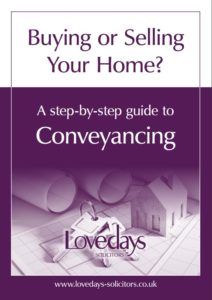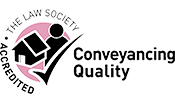- You & Your Family
- Your Job
- Family Law
- Divorce and Separation
- Finances on Divorce
- Dissolution of Civil Partnership
- Separation
- Cohabitation Agreements
- Finances on Breakdown of Cohabitation Relationship
- Prenuptial Agreements
- Grandparents' Rights
- Step-Parents' Rights
- Child Maintenance
- Parental Responsibility
- Paternity Disputes
- Buying Property Jointly
- Probate
- Wills
- Your Property
- Conveyancing
- Partnerships
- Disputes
- Boundary Disputes
- Dealing with Rent Arrears
- Japanese Knotweed Claims
- Landlord and Tenant Disputes
- Landlord Harassment & Illegal Eviction
- Negligence Claims Against Builders & Developers
- New Build Property Disputes
- Noisy Neighbour Disputes
- Personal Debt Collection
- Property Misrepresentations Claims
- Rights of Way Disputes
- Section 21 No Fault Evictions
- TOLOTA Claims
- Tree & Hedge Neighbour Disputes
- Your Business
- About Us
Discrimination at Work: Legal Advice For Employees
When you work for an employer, you expect to be treated fairly, but sadly this is not always the case. Sometimes employees can find themselves subject to workplace discrimination.
This can take many different forms and can affect how you are treated at work as well as the way in which you are dismissed. As an employee, your rights are protected under the Equality Act 2010 and it is important that your employer always follows the regulations contained within this.
If you feel as though you have been discriminated against at work, then the experts at Lovedays Solicitors are here to help you. Our friendly and professional team will deal with your case with care and sensitivity, helping you to understand what your rights are and what you can do if you have been discriminated against.
Understanding Workplace Discrimination
When someone is discriminated against at work, they're treated less favourably than other people. This is classed as discrimination when it covers certain ‘protected characteristics’.
These include age, disability, gender reassignment, being married or in a civil partnership, being pregnant or on maternity leave, race, religion, sex, and sexual orientation. All employees who fall under these protected characteristics are legally protected from discrimination by the Equality Act 2010.
You are also protected from discrimination if you are associated with someone who has account protected characteristics, or if you have complained about discrimination or supported someone else's claim.
There are different ways in which you might be treated less favourably by an employer. This might involve excluding you from opportunities or benefits within the business or making it harder for you to do your job. It can also result in causing someone emotional distress or financial loss as part of their job.
Direct discrimination involves treating someone with a protected characteristic less favourably than others, whilst indirect discrimination involves putting rules arrangements in place that apply to everyone but put anyone with a protected characteristic at a disadvantage. Discrimination can also take the form of harassment or victimisation. Treatment that puts someone at a disadvantage in this way does not need to be intended in order for it to be classed as discrimination.
It is important to remember that less favourable treatment can sometimes be justified if an employer is able to use positive action to help a disadvantaged group, or a disability exception to recruit a disabled person without the risk of disability discrimination. There may also be an occupational requirement, where it is necessary to recruit someone with a certain protected characteristic to do a particular job.
{quote}
Identifying Discrimination at Work
Discrimination can take many different forms. When it comes to harassment, this might be unwanted behaviour which is linked to a protected characteristic. This can often violate the dignity of employees or create an offensive environment. When someone is victimised, they will be treated unfairly because they have complained about discrimination or harassment in the past. There have also been examples of pay discrimination, such as when a woman is paid less than a man for doing the same job. Disability discrimination might take the form of a workplace failing to have disabled facilities, therefore making it impossible for someone with a disability to work there.
If you believe that you or someone you work with is being discriminated against, then it's important you document any instances that might demonstrate this. You should do your best to collect any evidence that you can, including any emails, messages, or witness statements that you are able to gather. You should keep records of all instances of discrimination that take place and record the dates and times that they happened. It is important that you understand the anti-discrimination policies of the company that you work for. These should outline what any unacceptable behaviour looks like and the steps you should take if you feel you are being discriminated against. You can then raise the matter with your employer or HR department as outlined in the grievance procedure.
Steps to Take If You Experience Discrimination
If you think that you have been discriminated against then you need to raise this within the business first. Look at any anti-discrimination policies that might be in place and see what they advise when it comes to raising a grievance. This will allow you to report any instances of discrimination to HR or a manager. They should listen to your concerns and look at the evidence that you have gathered before investigating the complaint.
If you have found that raising your complaint internally has been unsuccessful, then you may want to pursue other avenues. Mediation can sometimes be an option as this improves communication between the parties involved and helps to find solutions that everyone can agree to. This should be a confidential process and can help you to outline your concerns. By folding an impartial third party. It can sometimes be much easier to deal with the matter in a calm and clear manner.
Arbitration could be another option if the situation is heated or if more legal advice is needed. This allows both sides to air their points of view, but an arbitrator will come to a decision on behalf of both parties. Any decision that the arbitrator reaches will be considered to be binding.
If all other methods have failed, then it might be time to refer to an employment tribunal instead. It is important to remember that this should be a last resort as it can take a lot of time, can be very expensive and can be a very stressful process. You should not enter into a claim for an employment tribunal without seeking professional legal advice first. You must make a claim to an employment tribunal within three months of your employment ending or the discrimination occurring.
{quote}
Legal Framework and Your Rights
Equality Act 2010 was put in place to legally protect people from discrimination both in the workplace and wider society. It sets out the different ways in which it is unlawful to treat someone and defines who is protected what classes as discrimination under the law and the action that you can take if you feel you have been a victim. It protects employees, contractors, self-employed people hired to do work, job applicants and any former employees. It means that all employers are responsible for making sure that they do not unfairly discriminate in any aspect of work and take steps to actively prevent discrimination in the workplace. They must do all that they can to protect people from discrimination by others in the business and look after the well-being of their employees.
You must make your claim for discrimination within three months of your employment ending or the problem happening. If you intend to make a claim, you must inform ACAS and the time limit for making that claim will be put on hold while ACAS helps you to resolve the issue. If you win your case, your employer may be required to pay you compensation or pay any witnesses that you've paid.
They must also take steps to reduce the effects of discrimination against you and, if appropriate, give you your job back. If your case is unsuccessful, you can write to the tribunal office within 14 days of the decision asking for it to be reconsidered, as long as you have good reasons, such as believing the tribunal have made a mistake, you were not told about the hearing or there is new evidence.
Seeking Legal Advice and Support
If you believe that you have been discriminated against at work, then it is important that you seek professional legal advice as soon as possible. At Loveday Solicitors we have vast experience in dealing with employment law and can offer you thorough and in-depth legal advice. By talking to us in the early stages, we can look at your case and help you to determine whether you have been discriminated against. We will review your evidence and offer you guidance on how to proceed.
Our expert team can help you to understand the strengths and weaknesses of your case and we can look at the anti-discrimination policies that your workplace has in order to help you understand the best way to address this with your employer. If you choose to go through a process of mediation or arbitration, we can also advise you on what to expect during this process and represent you if necessary.
Should you decide to go as far as making a claim to an employment tribunal?
Our legal professionals will be on hand to help. We can assist with raising the claim, gathering the necessary evidence for the case and representing you in court if you need us.
If you feel that you are being discriminated against in the workplace, it can be an incredibly stressful and emotional time. It is therefore important that you have the correct support by your side in the form of Lovedays Solicitors. We will make sure that you have a full understanding of your case and the possible outcomes, to enable you to make the best decision for yourself. You can also get professional legal advice from other support services such as the Equality Advisory Support Service (EASS), the ACAS helpline and Citizens Advice.
{quote}
How Lovedays Solicitors Can Help with Discrimination Claims
The Equality Act 2010 has been put in place to protect you when you are at work, and here at Lovedays Solicitors we are here to help you uphold that. We can offer you an expert view on your case and can support you right from making an informal complaint to your employer all the way through to making a claim at an employment tribunal. We have years of experience in helping employees at all different levels who have been discriminated against at work.
We can help you whether you are suffering at work or whether the discrimination has led to an unfair dismissal. It does not matter what type of discrimination you have faced or the size of your employer, our expert team is ready to help you.
We are committed to supporting employees who have been discriminated against and you can rely on us to ensure that your best interests are put first at every stage of the process. By helping to fight your case, we can ensure that all employees have the same rights in the workplace. And we can help you to get the outcomes that you deserve.
Resources and Support Networks
As well as the fantastic team at Loveday Solicitors, there are also other resources out there that can help you if you believe that you have been discriminated against at work. The Equality Advisory and Support Service (EASS) has a helpline that is able to offer advice and assistance on all cases relating to equality and human rights across England, Scotland and Wales.
ACAS is also able to give free and impartial advice on workplace rights, rules and best practice for both employers and employees. They can help to advise on your situation and can also offer a number of dispute resolution services. Citizens Advice can also offer confidential and practical advice to employees.
Many of these services could not only offer you advice, but they can also provide you with templates for writing grievance letters or preparing for tribunals and helpful guides. There are many educational resources out there Which focus on employee rights and discrimination laws. These can help you to identify whether you have been discriminated against as well as the type of discrimination you have suffered. This is all useful information. To have on hand before you begin any kind of claim or dispute, and you can also provide copies for your employer to see.
Conclusion
Discrimination at work can affect your entire life. It can put you under huge amounts of strain and cause massive amounts of emotional distress. In addition to this, it can also lead to you being dismissed from your post unfairly. It is important to realise that all of this is against the law, and you should make sure that you get proper professional legal advice in order to fight this.
Lovedays Solicitors are here to help you if you've been discriminated against at work. We have vast experience in employment law and can not only offer you professional legal advice, but we will also handle your case with sensitivity and a friendly manner to make the whole process as easy as we can, helping you to reach the best possible solution.
{quote}
Frequently Asked Questions
Indirect discrimination usually occurs when a policy is put in place that applies to everyone but can put certain people at a disadvantage. This is often unintentional but is still classed as a form of discrimination.
If you have been a victim of discrimination, then you may be able to make a claim for compensation. This will usually relate to injury to feelings or financial losses that you might have experienced. You may be able to resolve this directly with your employer or through an employment tribunal.
According to the Equality Act 2010, depression can be considered to be a disability if it is a long-term condition that has a significant adverse impact on your ability to carry out day-to-day activities.
Get Support Today
If you believe you have experienced workplace discrimination, don't wait any longer to seek the support and legal advice you need. Contact Lovedays Solicitors today for expert guidance on your rights and options. Our dedicated team is here to listen, support, and advocate for you every step of the way, ensuring that you receive the justice and fair treatment you deserve. Take the first step towards resolving your workplace issues by reaching out to us now. Enquire today to discuss your case with our experienced solicitors and start the journey to a fair resolution.

Free Guide
If you don’t know your leasehold from your freehold, then get our Free Conveyancing Guide. It contains details about the steps you will need to take with any property transactions. The Guide giving you detailed guidance on what your lawyer will be doing for you and what to look out for.


Lovedays Solicitors, Brooke-Taylors Solicitors, Potter and Co Solicitors and Andrew Macbeth Cash and Co Solicitors are the trading names of Derbyshire Legal Services Limited which is a company registered in England and Wales under company number 08838592. Registered office Sherwood House, 1 Snitterton Road, Matlock, Derbyshire, DE4 3LZ.
Authorised and Regulated by the Solicitors Regulation Authority under SRA ID number 637916.
-
01629 56660
-
This email address is being protected from spambots. You need JavaScript enabled to view it. -
Sherwood House
1 Snitterton Road
Matlock
Derbyshire
DE4 3LZ
© Copyright 2019 Derbyshire Legal Services Limited | Website by WebWorks